When a Senior is heading off to university, a few to-do lists are on the horizon, involving preparations for the last few months at school and, more dauntingly, what comes after it. Sure, the world wide web presents many probable answers, but do they truly get what it’s like?
This is where ISKL’s Get Real! series comes into play. Get Real! is where our High School (HS) students can explore university options with their predecessors, the ISKL Alumni. The eighth installment of the series took place virtually, with Class of 2015 alumni Amierul Aqil Khairi, who shared his experiences – from the advantages of taking the IB in preparation for a university to general tips on living in Seattle, USA as an Aeronautical & Astronautical Engineering Ph.D. student at the University of Washington (UW).
Formative Years
 Born in Malaysia, roughly half of Aqil’s childhood was spent abroad, with him starting his Elementary education in Vienna, Virginia, and then in Kuala Lumpur at ISKL. Aqil and his family then moved to Ho Chi Minh City, Vietnam, where he finished Elementary and Middle School journey before returning to ISKL again for HS and graduating in 2015.
Born in Malaysia, roughly half of Aqil’s childhood was spent abroad, with him starting his Elementary education in Vienna, Virginia, and then in Kuala Lumpur at ISKL. Aqil and his family then moved to Ho Chi Minh City, Vietnam, where he finished Elementary and Middle School journey before returning to ISKL again for HS and graduating in 2015.
While at HS, Aqil studied for the IB Diploma with HL subjects Physics, Chemistry, and Math, balanced with Language & Literature, Spanish, and Business & Management. “Taking those classes helped prepare me for the first couple of years of being an undergraduate, especially in the USA, where you can’t always transfer all the credits, and you end up redoing them,” shares Aqil.
He also played on the Varsity Soccer team for two years and participated in the Earth Club, Habitat 4 Humanity, and Malaysian Cultural Club. Aqil was also part of an ISKL rock band called Feedback, that performed in the Battle of the Bands. “Playing Varsity and competing at an IASAS tournament was an unforgettable experience. I continue to play soccer and manage a recreational team here in the local leagues in Seattle,” says Aqil.
He shares that his passion for an active lifestyle started in ISKL and has led to further interest in hiking, and rock climbing and a desire to explore the world’s natural wonders, especially in the Pacific Northwest of the USA. “The ISKL Global Action Program (GAP) trips to Tioman, Nepal, and Sumatra were my first taste of this lifestyle and likely contributed to my current interests,” adds Aqil.
Life in Seattle, Washington
Aqil shared that once he knew he wanted to do Aerospace Engineering, he had to choose between UW in Seattle and the University of Illinois Urbana-Champaign (UIUC). He shares, “after applying to a few universities and considering the big city of Seattle versus college town Champaign. I knew that the area of Seattle was a vibrant, well-developed technological hub – especially for aerospace. That’s one of the main factors that made me decide on UW.”
Aqil also describes that the city of Seattle is a beautiful one to live in and the Pacific Northwest a stunning part of America, especially for hikers. “It is primarily gloomy, gray, and rainy most of the year; however, when it does get to summer, it’s gorgeous with clear blue skies and very long days, with plenty of sunlight and many opportunities to get outside.” He adds that there are various things to do in Seattle, even during the darker, shorter days, such as soccer, cycling, with plenty of trails, beautiful lakes, lakesides, and hills to explore.
Networking and Extracurricular Clubs
 Aqil recommends that undergraduate students start networking by joining clubs and to take advantage of the many extracurricular clubs available at large universities like UW. He shares, “It’s okay not to know what you want to do but use college as a time to explore your different interests. However, be prepared to change, adapt, and be open. When I was an undergrad, in addition to Engineering clubs, there were clubs where students built formula race cars, a car and superbike club, and another called Design Build Fly, where they engineered a remote control aircraft for a concrete competition canoe,” says Aqil.
Aqil recommends that undergraduate students start networking by joining clubs and to take advantage of the many extracurricular clubs available at large universities like UW. He shares, “It’s okay not to know what you want to do but use college as a time to explore your different interests. However, be prepared to change, adapt, and be open. When I was an undergrad, in addition to Engineering clubs, there were clubs where students built formula race cars, a car and superbike club, and another called Design Build Fly, where they engineered a remote control aircraft for a concrete competition canoe,” says Aqil.
He advises students to seek out and be aware of the opportunities available. “Many departments will send out notices and emails about their intake. Many of them are relatively informal, ranging from full-on opportunities where there will be interviews or where they let you join and shadow someone and spend time working on a particular part of a project,” he adds.
Aqil also shares there are plenty of opportunities at university to grow into leadership positions with many of his former club teammates now in Aerospace companies such as SpaceX, Blue Origin, Boeing, and Aerojet Rocketdyne. “A good portion of my undergraduate years was spent working with the UW’s Society for Advanced Rocket Propulsion, a student-led organization that built and launched high-powered sounding rockets. This culminated in a victory for UW at the 2019 Spaceport America Cup, which was a remarkable achievement for us,” says Aqil.
Aqil was also involved in UW’s student government, representing Malaysian students in the western part of the USA in a national organization known as the National Association of Malaysian Students in America (NAMSA), a non-profit organization run by Malaysian students in the USA to protect and further the interest of the Malaysian student body. “I ended up being elected as President of the West Coast arm of this organization, and did a lot of networking programs to orient new Malaysian students coming to the US and provide support and communication between all the different universities,” he adds.
Tips for Living Life as a Student in the US
“One big difference between HS and University is the amount of freedom you now have. You’re spending less time in class and spending more time learning how to manage your time better because now you’re living independently. I’ve learned along the way, and things I’m still learning about are on the practical side in college,” remarks Aqil.
He shares that student benefits are everywhere in the USA, from discounts at stores to various perks or even free passes to certain museums. “Be on the lookout for them because it can save you time and money and open up new places and opportunities you might have yet to learn about. For example, learning how to take public transport; only some students can afford a car, and only a few cities are very conducive. So navigating the local public transport can be handy,” advises Aqil.
Aqil also shares that building credit is essential, especially for those considering settling in the US. “The four-year suspended undergraduate is an excellent time to learn how to build monetary and financial skills. Starting with student credit cards can help, and having those years under your belt can help you further down the line,” he adds.
Living with roommates, learning to be clean, doing chores, getting health insurance, and setting schedules are also critical for undergrad students. “A lot of the time, health insurance is included in the tuition that you pay, and there are a lot of opportunities and benefits to take care of your physical and mental health that often don’t go used,” continues Aqil.
Building Relationships and Mental Health
“Maintaining friendships takes effort as an undergrad student, and that’s a skill to be learned and an adjustment. Following your interests, making time for your hobbies, joining clubs, and making friends at work can help build these relationships,” he says, adding that having comfort in your solitude is also essential. “As an international student with family in Malaysia I spend more time alone.”
He says that in line with building a support group, there will be other students, older students, professors, and family you can connect with. “Having people around you to support and talk to can be helpful in terms of career and thinking about your network. Many different things can change, and new opportunities can come up, so be prepared for that, adaptable, and open to whatever comes your way.”
Aqil also stresses being mindful of one’s mental health. “The undergraduate experience can be very stressful, and there are a lot of new challenges coming at you from different directions and commitments. Things can take a toll and add a lot of pressure, so it’s essential to be aware of that, acknowledge it, and take steps to address your concerns.”
Are you interested to learn more? We invite you to watch the full video where Aqil gave more insights on university life in Seattle, in the USA! Want to become a mentor? Let us know at [email protected].









